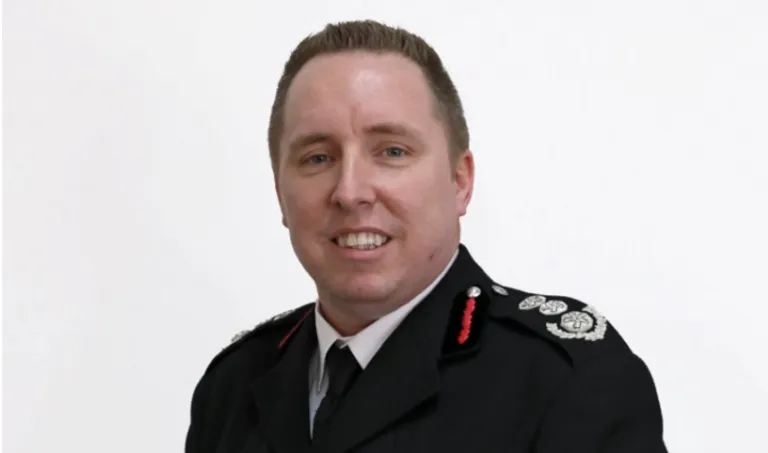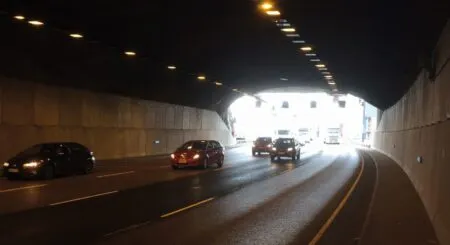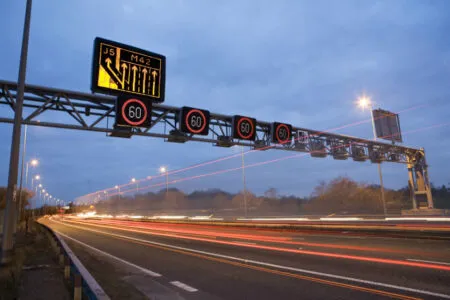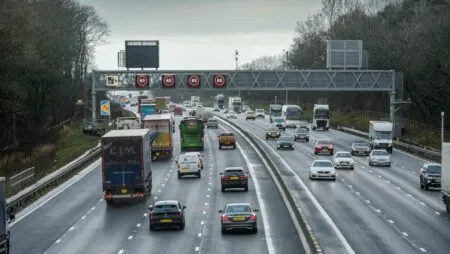The UK’s lead firefighter for road rescue has welcomed the news that real time road crash data could soon be made available to the emergency services, helping to speed up collision response times and save lives – describing it as a ‘breakthrough.’
In the event of a collision, the TeCall system, which is the name of the project to be piloted, will provide detailed information about the vehicles involved to the fire service, police, paramedics and highway operators, almost instantly.
eCall data is already available, but the emergency services are not fully making use of it, only utilising vehicle location. TeCall will give easy access to all of this.
Developed by VESOS Solutions, TeCall will immediately analyse e-Call connected vehicle data, available from the majority of UK cars and vans, providing emergency services with a vehicle’s exact location, make and model, vehicle fuel type, or if it is electric – for example, collisions involving electric vehicles require additional fire tenders due to increased risk, number of occupants – and if vulnerable people are on board.
“I am delighted that Surrey Fire and Rescue Service are working with partners to incorporate the call data from eCall technology into our emergency response,” said Dan Quin, chief fire ffficer for Surrey Fire and Rescue Service, and the National Fire Chief Council’s (NFCC) lead for road safety and road rescue. “This breakthrough will revolutionise our ability to serve and protect the community. We are pleased to finally be accessing this invaluable data, which has been available for some time.”
The development of the Proof of Concept has been made possible thanks to a grant from the 2022 Transport Research and Innovation Grants (TRIG) programme, and is delivered by Connected Places Catapult on behalf of the Department for Transport (DfT).
eCall gathers life-saving data
eCall is automatically activated in the event of an incident when the airbags are deployed. It can also be manually activated by the driver or passenger by pressing the eCall SOS button.
Since 2018, eCall has been mandatory on all new approved cars and vans sold in Europe and the UK, yet the safety feature and the extensive, life-saving data it gathers, is still largely unknown and has been unutilised by the authorities.
With five people being killed and hundreds being injured, on average, every day on the UK’s roads, TeCall could offer a lifeline to the emergency services working hard to reduce road harm.
The project, which will run for six months, will be supported initially by Surrey and Warwickshire fire and rescue services, with others across the country targeted to take part.
Chief Fire Officer Quin continued: “The wealth of information provided by eCall data will enable us to make better-informed decisions, respond more quickly to incidents, and ultimately save more lives. We are grateful for this opportunity and are eager to embrace the future of emergency response with this technology.”
Andy Rooke, a former police inspector and co-owner of VESOS, said: “eCall has been mandatory for five years, but up until now its true life-saving value has not been realised.
“So far, emergency services have largely used the voice aspect of eCall, but that – while still beneficial – relies on people in the vehicle being conscious, able to speak and hear. We can achieve far greater benefit if we use the data aspect too.”
VESOS’ TeCall platform will ensure only genuine and validated eCall data is presented to emergency services and road operators, with false alarms filtered out and data then presented automatically into emergency Command and Control systems.





